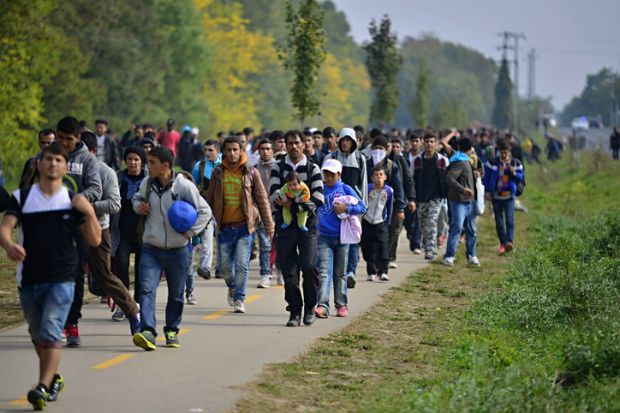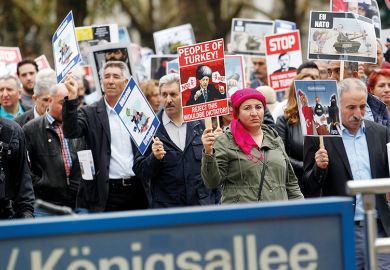The scale of the Covid crisis has tended to distract attention from other vital issues such as the plight of persecuted academics.
Yet there remains a “continued urgent need” to support that group of distressed scholars, according to a new report from the Institute of International Education (IIE), which says its Scholar Rescue Fund (SRF) “received more requests for assistance” in 2020 than ever before. It also points to a range of reasons, beyond humanitarian relief of suffering, why universities should care.
In 2002, the trustees of the IIE set up the SRF to provide fellowships for threatened and displaced scholars around the world. The scheme has now saved the lives and careers of just over 900 alumni, of whom 207 (from 38 countries) agreed to respond to a survey.
The results have been published in the report To Rescue Scholars Is to Rescue the Future, by Evgenia Valuy and Jodi Sanger, which offers “concrete evidence of the indelible impacts these talented and courageous scholars have made on their home countries, host communities, and academic disciplines”.
Taken together, the alumni have produced more than 5,000 publications and “creat[ed] an impressive multiplier effect” by sharing their knowledge with more than 52,500 students on more than 1,600 courses.
Twenty-six per cent of the alumni responding to the survey were now back in their home countries – and 11 per cent more were in their home regions. Yet wherever they are based, many have a deep commitment to social justice and have greatly benefited their countries of origin.
A Moroccan alumnus who spent time at the University of Rennes in France and then returned to his native country, for example, was the first person there to make the case for “decriminalis[ing] premarital sexuality” – a “demand [which] finally reached the Moroccan parliament in 2019”. An Iraqi alumnus “collected more than 3,300 advanced scientific books from all staff members and schools [at a British university] and arranged shipping to Mosul University in Iraq to revitalise their destroyed university library”. A Cameroonian based in the US has “been vocal on social media, exposing the atrocities of the regime and speaking up on behalf of colleagues who can’t speak because they are within the system”. And a Haitian has joined forces with a lecturer at the University of Glasgow on “an archive-saving project”.
More generally, according to the report, “alumni who taught in their home countries – whether returning or via distance learning – exposed students to international academic practices and opportunities, many of which the scholars became familiar with through their IIE-SRF fellowship appointments, thus diversifying the global academic voice and strengthening their home countries’ academies”.
Yet, crucially, IIE-SRF alumni have also greatly enriched the countries where they secured fellowships and others they have moved on to. Those “who lived and taught abroad”, write the report’s authors, “used teaching as an opportunity to share their culture and unique experiences and expertise with the students, internationalising their campuses and increasing their students’ knowledge and cross-cultural competency”.
Register to continue
Why register?
- Registration is free and only takes a moment
- Once registered, you can read 3 articles a month
- Sign up for our newsletter
Subscribe
Or subscribe for unlimited access to:
- Unlimited access to news, views, insights & reviews
- Digital editions
- Digital access to THE’s university and college rankings analysis
Already registered or a current subscriber? Login








